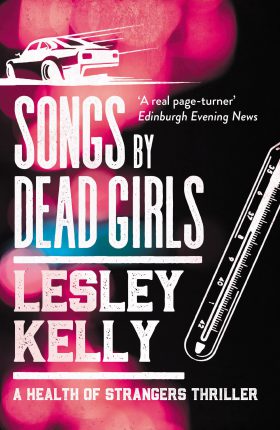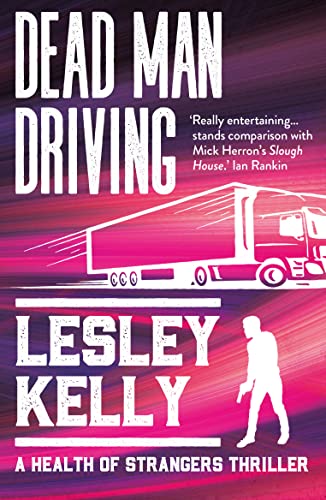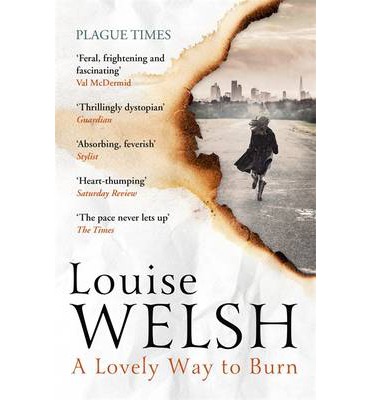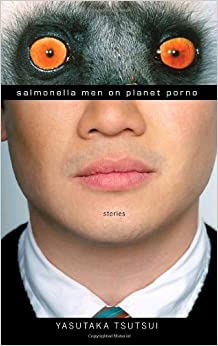
Imagine that a novel virus caused chaos and led to significant restrictions on public movement and…
Oh. Hello Covid-19! No need to imagine the government crackdown or the population’s reactions. But actually, that just makes ‘Songs by Dead Girls’, first published in 2018, EVEN BETTER because it’s so perfectly pitched. Now I don’t mean that Kelly perfectly predicted the government response to Covid, but her unerring insight into the realities of public health enforcement mean that the world building in this series is completely convincing. For me, one of the most striking instances of this insight came when one character reflected that:
‘Virus policy was educated guesswork, a series of decisions based loosely on research, and tempered by the level of restrictions on their liberty the electorate would tolerate. It might be a crisis, but everyone in the chamber still wanted to be re-elected.’
Sound familiar?
But let’s start at the beginning.
What’s it about?
Since the Virus arrived, all members of the population must attend a monthly health check, thereby verifying their public health status and allowing them access to public life. Mona, Bernard, Maitland and Carole form the core of the North Edinburgh Health Enforcement Team, working to make Edinburgh safer. A miscellaneous bag of police officers and health workers drafted in to enforce virus policy by chasing health check defaulters, they are used to being spat on, avoided and lied to, but as they have suffered the Virus and survived, their immune status and, erm, personality quirks, have ensured that they remain in post.
Of course, not everyone is convinced that mandatory health checks are a good idea, and when a leading architect of the policy disappears mere days before his own health check, Mona and her boss, Paterson, are dispatched to find him – quietly! – to escort him to his health check and avoid embarrassing the government.
Meanwhile, Maitland, Bernard and Carole are left to run the office and hunt for a confirmed defaulter, a woman who they soon realise must be a prostitute. This ought to be a relatively simple task, but Maitland is struggling to get on top of the admin and Carole is distracted by her son, so between a missed memo, an unsuccessful meeting with a politician and a well placed kick in the jaw, there’s soon just as much chaos in the HET office as there is on the trail of the missing Professor…
What’s it like?
Brilliantly entertaining from the outset, which involves Mona and Bernard donning stab proof vests and contemplating visiting a defaulter who they know is likely to be either ‘a wrong ‘un’ or dead (due to being a ‘wrong ‘un’!)
I particularly feel for Bernard, whose background has not prepared him for this job as well as Mona’s did. In a typical reflection, Bernard hopes that:
‘Amongst his many secret fears was that on one of these jaunts he was actually going to have a cardiac arrest. His only hope was that the heart failure would be instantly fatal, and wouldn’t involve him having to face the ridicule of the HET team from a hospital bed.’
This is a series that is simultaneously gritty and cosy: no matter that Carole’s face is ‘pouring with blood’ in the blurb, we can feel confident that she’s going to make it through to book 3. Speaking of which, although I have read and enjoyed the first book in the series, (called ‘The Health of Strangers’,) it is not necessary to have done so in order to enjoy this book. Everything you need to know is covered briskly during the course of the first few pages in a natural way.
Final thoughts
I really enjoyed reading this. I enjoyed the dark humour, the banter between the HET team and the difficulties they encounter in their respective tasks. As mentioned before, the depiction of politics and policy is especially convincing. At one point Bernard watches the news and reflects that:
‘The Virus was not the first item, which was good because there were obviously no heightened threats. It was also bad, because it meant that the Virus had slipped from being the lead item to being routine news to be fitted in between cabinet rebellions, trade talks and the And finally heart-warming closer. Virus news coverage had passed from acute to chronic.’
In fact, the only element I wasn’t sure about was the ending. Instead of a final conclusion, there’s a sense of chaos, of an escalating plot. I wondered whether book 3 would open on the resolution of what appeared to be a cliff hanger, but a scan of the blurb suggests it is a separate story. This led me to reread the final pages of the first book to discover the same type of conclusion. It seems Kelly just likes dramatic endings! I would have liked a neater ending, but on reflection, that would be out of keeping with the nature of the story, in which the HET is ultimately a political construction and therefore vulnerable to political winds…
‘Songs by Dead Girls’ was a real page turner and I look forward to reading ‘Death at the Plague Museum’.


